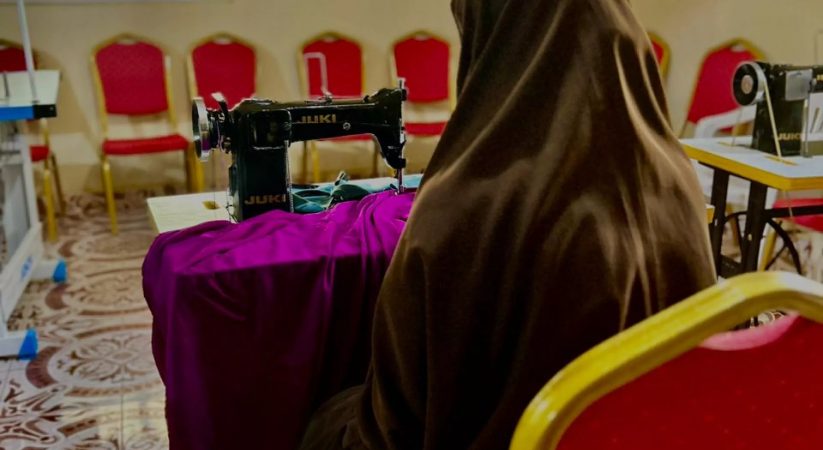
UNICEF supports skills training for survivors of gender-based violence
Jamal Abdi Sarman
Asha*, a mother of three, is among several women staying at a safe house for survivors of domestic violence and abuse in Burao town, Somaliland.
According to Nura Salad, the Shelter Manager at Women’s Action Advocacy Progress Organization (WAAPO), Asha “faced a difficult marriage, often suffering abuse from her husband and mother-in-law. One night, she was badly beaten and ejected from her matrimonial house at three in the morning. The violence was reported to the local police who, after recording the case, referred it to Baahi-Koob care and support centre.” Asha was fortunate to receive medical care at the centre and then be referred to the WAAPO Safe House.
“The first intervention in such cases is medical care. In the case of rape or sexual assault, post-exposure prophylaxis is administered to prevent transmission of HIV and other sexually transmitted diseases,” says Nura. “Thereafter, the survivor is brought here at the WAAPO Safe House where we initiate counselling, provide psychosocial support, accommodate the survivor, and offer skills training. We push for justice for the survivor because the perpetrator has committed a crime and needs to be brought to justice. We provide free legal services to the survivors and work together with the police and courts.” Baahi-Koob centres and WAAPO safe houses were established in major towns in Somaliland with the support of the Danish Government.

The most common incidents of gender-based violence women and girls in this region face are sexual violence, female genital mutilation (FGM), and child and forced marriage. Gender-based violence remains pervasive yet is one of the least visible forms of human rights violation.
In the Burao WAAPO Safe House, Amina*, a 24-year-old survivor of gender-based violence, sits in a spartan room with her three-month-old infant nestled in her lap. She came to the Center after being abused by her husband.
“Trouble began in December last year when my husband raped my younger sister who had come to stay with us because I needed help with my newborn baby,” she says. “When I confronted him, he beat me up and ganged up with his relatives to accuse me of falsely framing him. The matter was reported to the police, but I feared for my life. I fled the house and came here.”
According to Nura, the Center Manager, subsequent investigations by police and Baahi-Koob confirmed that Amina’s sister had indeed been raped. Her husband was arrested and charged with rape and assault.
Deep-rooted cultural beliefs in Somaliland create persistent inequalities between men and women and place women at greater risk, often, of being blamed for the crime and victimized. Victims suffer great shame and ostracization from their families.
The WAAPO Safe House provides a safe and caring environment that helps women in their emotional and physical recovery. The safe house also equips the survivors with the knowledge and skills to stand on their own feet once they leave the shelter.
In addition to supporting survivors of gender-based violence, UNICEF is encouraging and supporting the authorities to put in place laws, policies and systems that enhance the protection of children and women. Important investments are being made in training a professional cadre of social workers who are at the frontlines of preventing and responding to sexual violence and other forms of gender-based violence.
*The name has been changed.
_____________________________________________________________________________________Xafiiska Wararka Qaranimo Online | Mogadishu, Somalia
_____________________________________________________________________________________Advertisement
_____________________________________________________________________________________





